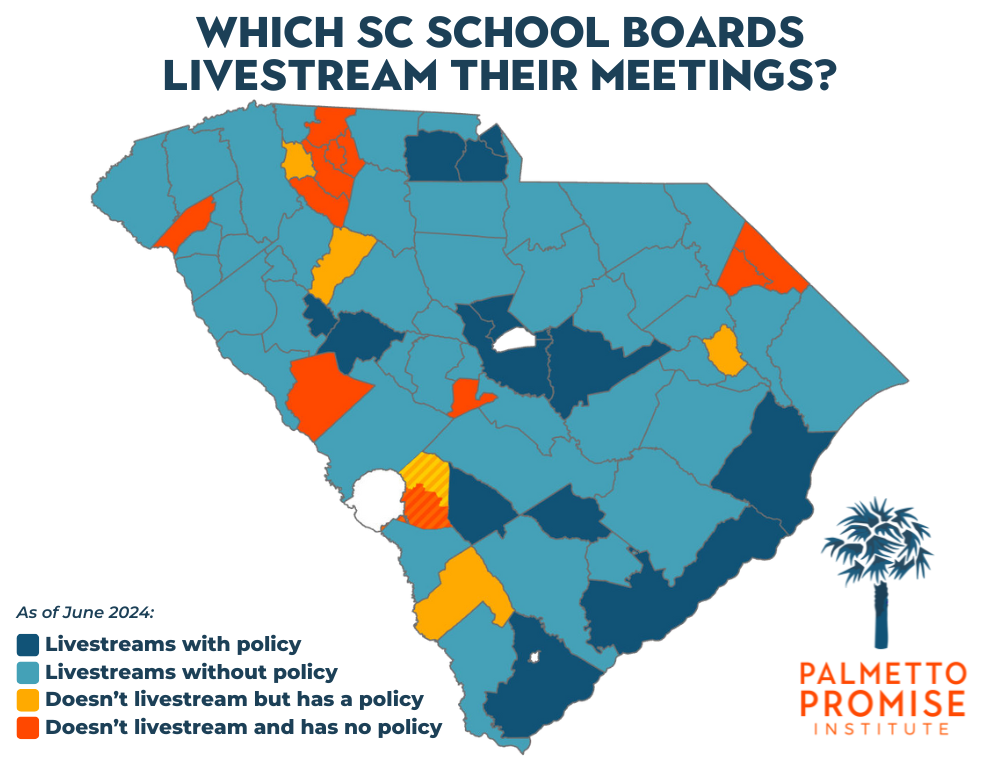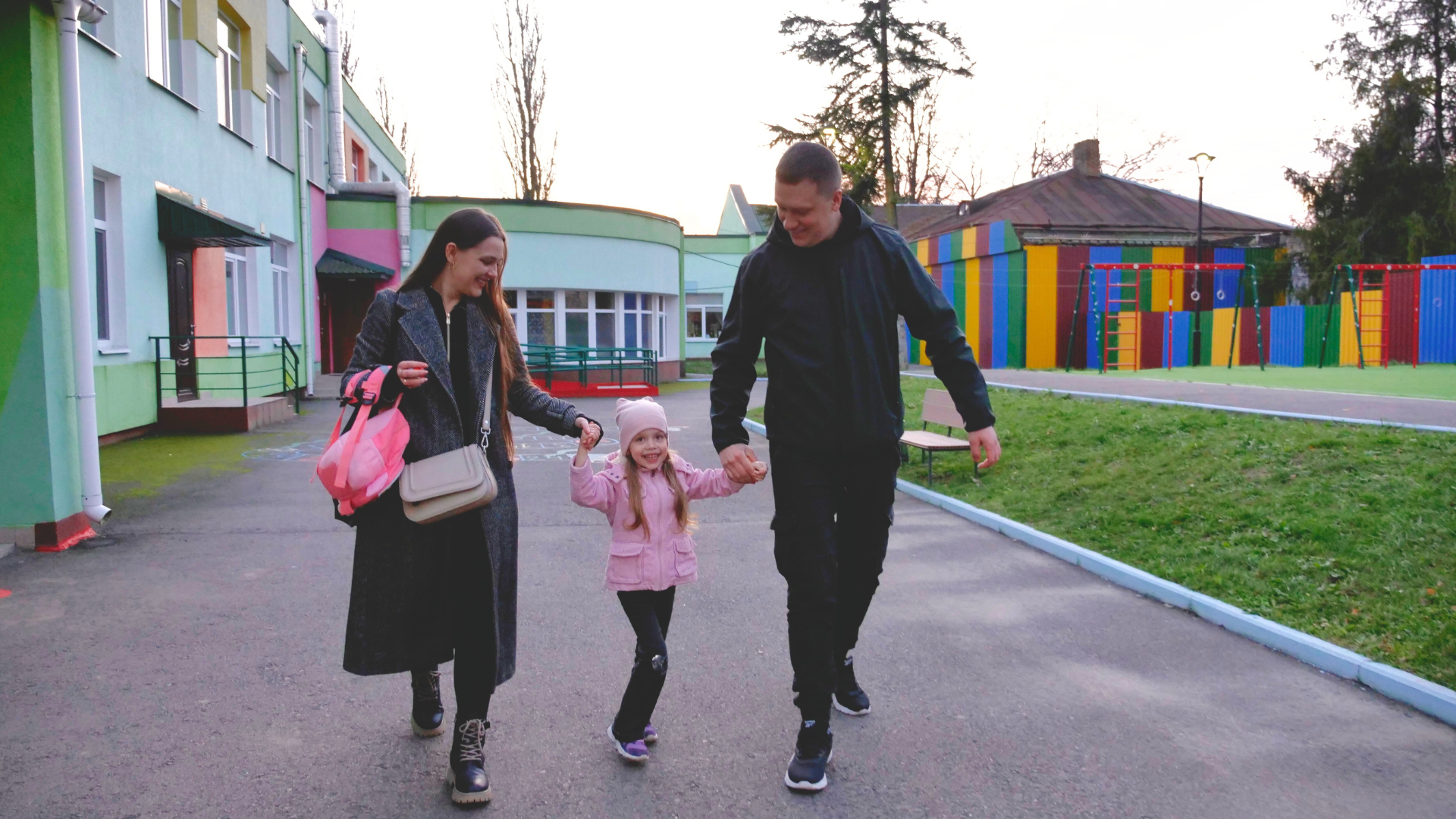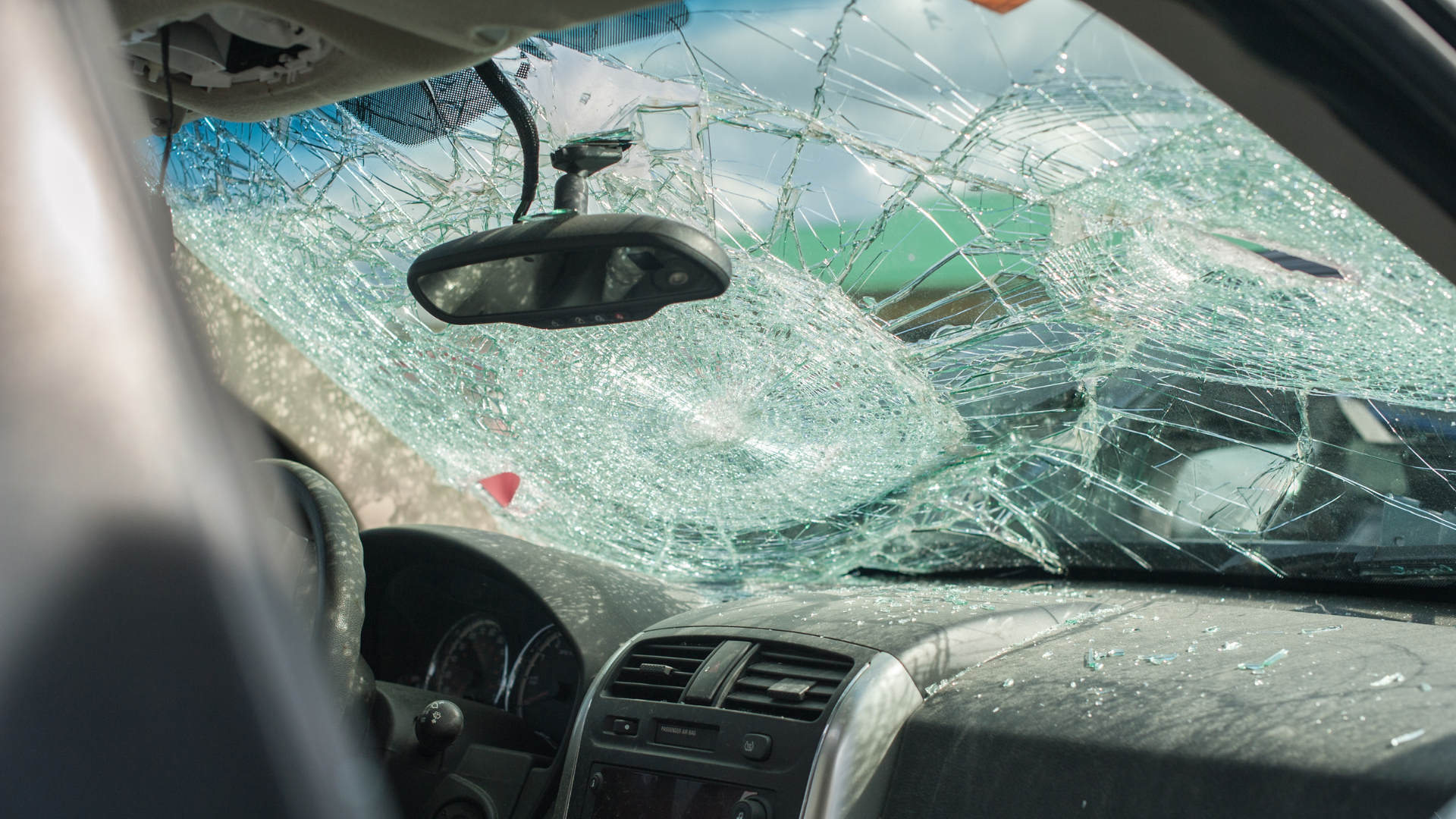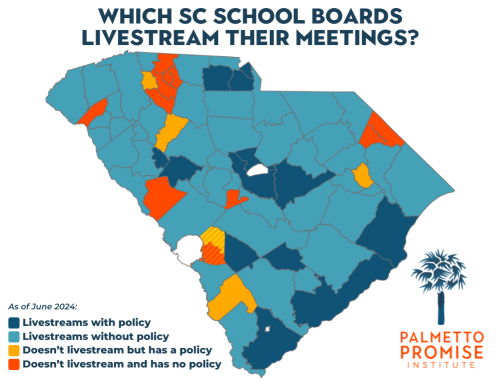In the 2023-24 legislative session, Senator and Education Committee Chair Greg Hembree (R-Horry) introduced S.134, a bill that would require South Carolina school boards to livestream their meetings or make them otherwise electronically accessible in real-time.[1] The bill passed the Senate unanimously in early 2023 but unfortunately died in the House, after waiting an entire 14 months for a committee hearing. Palmetto Promise hopes to see Hembree’s proposal revived in the 2025-26 legislative session; it is a much needed and essential policy. In the internet era, livestreaming is standard practice. Parents and the wider community of citizens should enjoy easy, transparent access to the actions of their democratically-elected representatives at the school district level as they do those at the state level.
Opponents to S.134 argued that it was unnecessary legislation, as most (if not all) South Carolina school districts already livestream their meetings. We wondered if this was really the case. To investigate, we took a deep dive into livestreaming policies across the state’s 73 school districts, especially after several counties began to consolidate some of the increasingly shrinking ones, as Senior Fellow Oran Smith noted back in 2021.[2]
In May-June 2024, our team cross-referenced whether school districts livestreamed with whether they had policies mandating that they livestream. Here is what we found in our analysis (though please note that a given policy may have been updated in since it was first reviewed):

Click to download this data in table form.
The above map, because it is dominated by a shade of blue, reveals that most districts in the state livestream their school board meetings without being required to by either state law or district ordinance. This is a remarkable display of transparency. Some districts, however, have not made an effort to make meetings more accessible to their community. Spartanburg, home to seven school districts, is notorious for this: only one Spartanburg district has a codified policy for livestreaming, but the link to the video was not readily apparent, possibly hidden deeper than the district’s website, Facebook, or YouTube page.
The ideal for school district livestreaming is embodied in the districts shaded in dark blue. They both livestream their meetings in an easily-accessible format and have a codified requirement to livestream. This means that the district’s livestreams are protected from the whims of board members who might wish particular meetings to be kept shrouded.
S.134, if passed, would provide a statewide mandate and a legal safeguard against arbitrary cessation of board livestreams. It would be a simple law to implement across South Carolina, especially since most districts already comply with most or all of the requirements contained within the proposed rule. The Palmetto State would then be on par in terms of transparency with others around the country—West Virginia’s Board of Education passed a policy mandating that school boards livestream meetings just last month. Texas has boasted such a law since 2016, before the pandemic spurred online access to government proceedings.
In an increasingly digital age, where public policy is crafted in real time, there is no reason for school boards to resist utmost transparency. Parents and community members who are hospitalized or are otherwise unable to attend proceedings in person deserve the ease of access provided by a livestream. Physical presence should not be a requirement to participate in public policy, particularly in the crafting of policies that involve the education of the next generations.
Recommendations for Improvements to S.134
The current language of S.134 addresses “the entirety of meetings of its regularly scheduled or special called meetings of its full governing body…” Our work with the Carolinas Academic Leadership Network (CALN) has shown us that not unlike legislative work, the real heavy lifting of policymaking at the school board level is often done in committee. An improvement to the bill when filed in the future would be to specify that committee markup sessions are also to be livestreamed. Committee meetings of the South Carolina Senate and House are uniformly livestreamed along with many subcommittee hearings, depending on the capability of the meeting room. School board committee hearings are often held in the same room as the proceedings of the full board of trustees.








